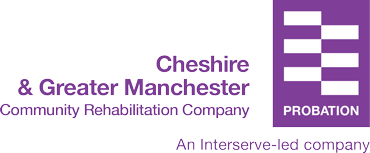Getting the right support, in the right place, at the right time

A new service officially launched yesterday in Greater Manchester aims to divert vulnerable people away from the criminal justice system and into the hands of services better able to tackle the root causes of their criminal behaviour.
It supports people affected by a number of vulnerabilities, including mental ill health, homelessness, PTSD, learning disabilities, and drug and alcohol addiction.
Cheshire & Greater Manchester’ Community Rehabilitation Company’s (CRC) Chris Martin, Integrated Partnership Manager for GM Integrated Healthcare in Custody and Wider Liaison and Diversion Service, said: “The Healthcare in Custody and Wider Liaison and Diversion Service aims to get people access to the right support, in the right place, at the right time.
“The Service Launch event gives us all a real opportunity to showcase the good work we have done so far and engage with key stakeholders as we continually seek to improve the service, making a real difference to the lives of service users in Greater Manchester. Seeing almost 3,000 people a month who have come into contact with the criminal justice system provides a real opportunity to make a difference to people’s lives and play a part in stopping a cycle of reoffending.
“Whilst the services’ work in the custody suites seeks to provide the highest standard of care and offer an opportunity to address vulnerabilities, we acknowledge the need to engage with the wide range of Greater Manchester agencies, who make a difference in the lives of people in our communities on a daily basis.”
Deputy Mayor for Policing and Crime, Baroness Beverley Hughes, said: “While keeping the public safe is the number one priority, it’s clear that a custody cell or prison is not always the right place for vulnerable people, such as veterans with PTSD, homeless people, or people with learning disabilities.
“The criminal justice system doesn’t solve their problems and doesn’t stop them reoffending. Too often their criminal behaviour is directly linked to problems in other areas of their life – a disruption in taking prescribed medication, problems managing debt, alcohol addiction, housing problems. These are the issues that need resolving.”
Jon Rouse, Chief Officer of Greater Manchester Health and Social Care Partnership, said: “Devolution in Greater Manchester gives us an opportunity to do things differently. This service is the result of organisations from across our region working together to expand on existing provision, in a way that was simply not possible two years ago.
“We’re committed to improving the health and wellbeing of Greater Manchester residents. This means stepping outside those environments traditionally associated with the NHS, such as hospitals or local health centres, to ensure vulnerable people have the support they need.”
Rob Potts, Assistant Chief Constable for Greater Manchester Police (pictured), said: “We welcome this new service and recognise that custody isn’t the best place for those people who are vulnerable. We need to recognise any issues that they may have and make sure people are receiving the support they need.
“We hope that by providing this service we can help reduce reoffending and the number of people coming through the custody process with the associated outcome of fewer people becoming victims of crime.”
Dr Vis Reddy, Mitie Clinical Lead for Care and Custody, said: “Integrated, patient-centred, coordinated healthcare is now being provided across Greater Manchester’s communities for those who come into contact with the criminal justice system.
“Mitie Care & Custody, North West Boroughs NHS Foundation Trust, and Cheshire & Greater Manchester Community Rehabilitation Company, have brought together their expertise of traditional custodial healthcare, liaison and diversion, and community support in an innovative partnership with the combined goals of keeping patients safe in police custody, addressing service users’ wider vulnerabilities, and supporting them to engage with health and social services in the community.
“This service aims to reduce re-offending behaviour by addressing the often complex health and social care needs of service users and, alongside the wider public sector reform agenda to engender safer, healthier and stronger communities across Greater Manchester.”
